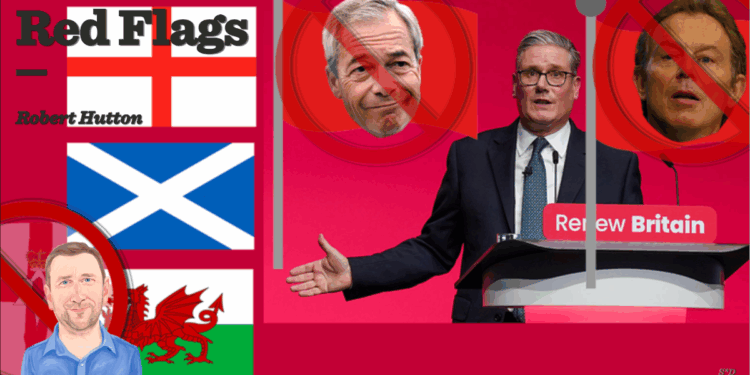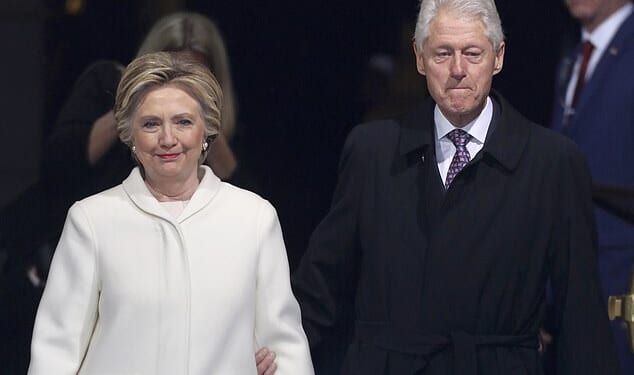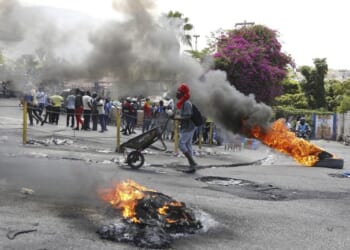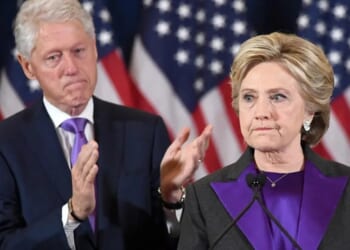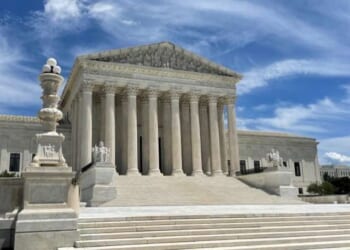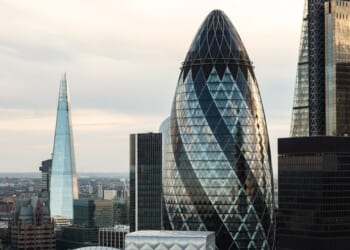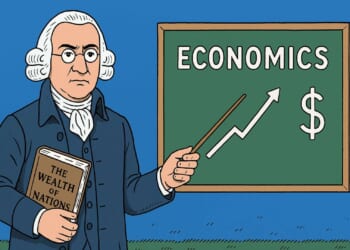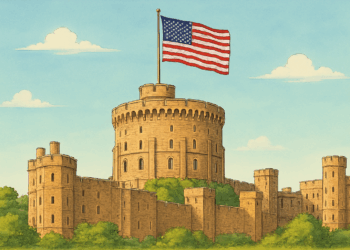Starmer blames two people for everything that is wrong with Britain: Nigel Farage and Tony Blair
There were flags everywhere. We were handed them as we walked in: Union flags, Welsh dragons, Scottish saltires, crosses of St George. Sadly, there was no Red Hand of Ulster. Maybe next year. More events should do this: nothing brings out the inner five-year-old like being given something to wave. Give us party poppers, too.
Keir Starmer’s speech to Labour conference was too long, of course. It always is. Even 20 minutes in, as the prime minister invited the hall to join him in creating a new economy of “British graft”, the applause was muted, as though delegates had nodded off. We were asked to “say with one clear voice that public investment does not crowd out private”, a slogan I fear will not be catching on at the barricades.
We had pre-underwhelmed ourselves ahead of the speech, and Labour may have feared that others in the hall had done the same, because before the prime minister came on stage we were given plenty of reminders of all the wonderful things the government is delivering, from breakfast clubs to hospital appointments. As extra insurance, a Hillsborough mother was sent out to inform us that, contrary to what we might have heard elsewhere, Starmer is a man who keeps his word.
Listening to members of the Cabinet talk about their love of country is like listening to your parents talk to you about sex
It was a speech aimed squarely at the people Starmer blames for everything that is wrong with Britain: Nigel Farage and Tony Blair.
For Farage, there were great sections that denounced him as an unpatriot who hates his country. “He doesn’t like Britain, doesn’t believe in Britain,” Starmer said to loud applause. This kind of thing is almost always unfair, but it is also a line that Farage delivers about everyone else, so it would be churlish not to enjoy his own ammunition being used against him.
The criticism of Starmer’s illustrious predecessor was implicit, but surely intended: there was a renunciation of the idea that 50 per cent of kids should go to university, and a long section that denounced an unnamed but clearly identifiable past government. “Complacent,” Starmer said. “That’s the only way to describe it. Complacent. We placed too much faith in globalisation, the establishment across so many institutions in hock to its lazy assumptions that immigration is all we need to give us the workers.” I don’t think this is exactly how the Tony Blair Institute would phase things, but they’re probably too busy these days trying to work out where to build Trump Plaza Gaza.
There was the inevitable reference to Starmer’s father. “I think by now you know what he did for a living,” he said, to laughter. “but then again, do you?” As one, the press bench shouted a probably unwanted reply: “YES!” On the one hand, Starmer’s difficult relationship with his father is the key to understanding everything about the prime minister. On the other, it might be better for him to just to work this stuff out in therapy.
The criticism of the speech is that it didn’t answer the questions it posed. If immigration isn’t the way to make the economy grow and deliver care for the elderly, then what is? The “defining mission” of the government, Starmer said, is to “change the way we create wealth.” OK, but how? If, as Starmer did, you are going to denounce “the Brexit lies on the side of that bus”, there’s an obvious corrective step that you might want to consider.
But just as we feared the prime minister was flagging, he got to the section of the speech where he knew what he thought, and found a new energy. Somewhat to our surprise, it turned out he wanted to talk about flags.
Flags have of course been the theme of the summer. Across the country, they have sprouted from lampposts and been painted onto every white surface. Has this been a spontaneous outpouring of love of country, or something more sinister? There are plenty of people at Labour conference who suspect the latter, and they probably include the prime minister, but on Tuesday he made an attempt to reclaim flag-waving for the rest of us.
Labour isn’t generally comfortable with patriotism. Listening to members of the Cabinet talk about their love of country is like listening to your parents talk to you about sex: it’s sincerely meant to help, but you just wish they would stop.
But Starmer has clearly been thinking about all this, and had something he wanted to say, that there are ways of loving your country that don’t involve attaching plastic tat to street furniture or demonstrating outside hotels full of asylum seekers. Reform, he said, “just want to stir the pot of division.”
The prime minister’s argument was nuanced, and the room liked some bits more than others. He told the party that it had made people feel that any complaints about bad behaviour in immigrant communities would be denounced as racism. They weren’t in love with his call for secure borders either. But they liked what came next.
“Controlling migration is a reasonable goal, but if you throw bricks and smash up private property, that’s not legitimate. That is thuggery.” They rose to their feet, and he went on. “Free speech is a British value — and we have guarded it for centuries. But if you incite racist violence and hatred, that’s not expressing concern — it’s criminal.” They were cheering now.
“And if you say that people cannot be English or British because of the colour of their skin,” he said, “and that people who have lived here for generations, raised their children here, built lives in their communities, working in our schools, our hospitals, running businesses, our neighbours, if you say they should now be deported, then mark my words, we will fight you with everything we have.” Finally, Starmer had said the words his party had wanted to hear for weeks, and they loved him for it, at least in that moment.
He took us back to 1996, and cheering on the England football team in the European Championship. “I’m not going to pretend,” he said, “that I would enjoy it if England lost to Scotland or Wales.” Suddenly, across the hall, the Saltires and Welsh Dragons waved, and there was a low rumbling cheer at the prospect of English defeat, and then the rest of the hall laughed in good-natured response. It was a spontaneous illustration of the point Starmer was trying to make, that different peoples can be united in one country.
“Let’s wave all our flags,” he said, “because they’re our flags.” And they rose, and did just that.

